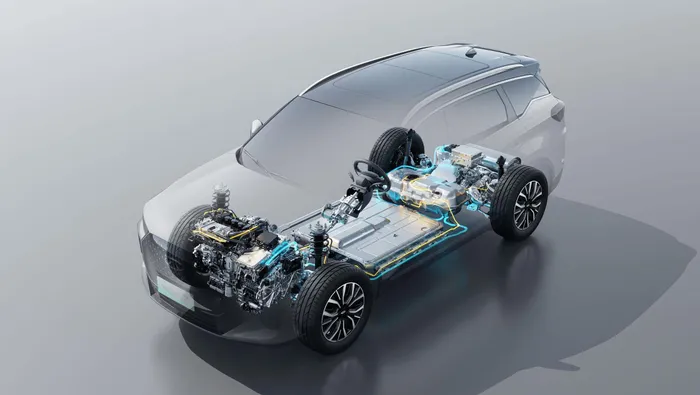
Hybrid vehicle sales are surging in South Africa.
Image: Supplied
With diesel-powered cars and SUVs becoming less common due to international emissions laws, hybrids are emerging as an enticing alternative for South Africans seeking a fuel saver.
Although no hybrid models are priced within the budget category, they are still significantly more affordable than full electric vehicles, and there are now more options available for under R500,000.
But before you consider your options, it’s important to take note of the different types of hybrids available on the market.
So-called ‘mild hybrids’ such as the Suzuki Grand Vitara AllGrip and Renault Duster 4WD, feature a 48-volt electrical system as well as a small electric motor and battery, but their fuel economy benefits are minimal.
For this list, we’ve stuck to traditional hybrid models that can propel the car with electric power alone, albeit usually only at lower speeds. But this is where a hybrid system makes all the difference, as a petrol engine is at its least efficient during stop-start urban traffic.
These are the six least expensive hybrid vehicles available in South Africa:
The recently launched Tiggo Cross hybrid is available in two versions, with the Comfort variant priced at R439,900 and the Elite retailing for R469,900.
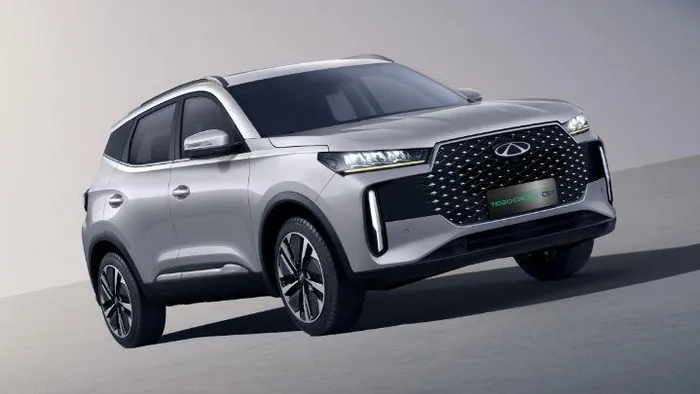
Chery Tiggo Cross CSH
Image: Supplied
Oddly, the base hybrid costs R40,000 more than its petrol-powered equivalent, while the flagship commands a R20,000 premium. Nonetheless, these are now the most affordable hybrid vehicles in South Africa, undercutting the slightly larger Toyota Corolla Cross HEV, which starts at R494,400.
The Tiggo Cross CSH combines a 1.5-litre normally aspirated petrol engine with a powerful electric motor for combined outputs of 150kW and 310Nm. But best of all is the claimed fuel consumption figure of 5.4 litres per 100km, undercutting the ICE turbo model by 1.8 l/100km.
As it is new to the market, the Tiggo CSH has not yet been tested by local media, but overseas reports speak of a smooth and surprisingly punchy driving experience and real-world fuel consumption of around 5.8 l/100km.
Practical, powerful, and well-appointed, the Tiggo Cross CSH is well worth a look if you are considering a hybrid model for under R500,000.
The Toyota Corolla Cross still falls below the magic half-a-million mark, with the XS variant coming in at R494,400 and the more luxurious XR costing R545,200. That’s a premium of R42,000 over the regular petrol versions.
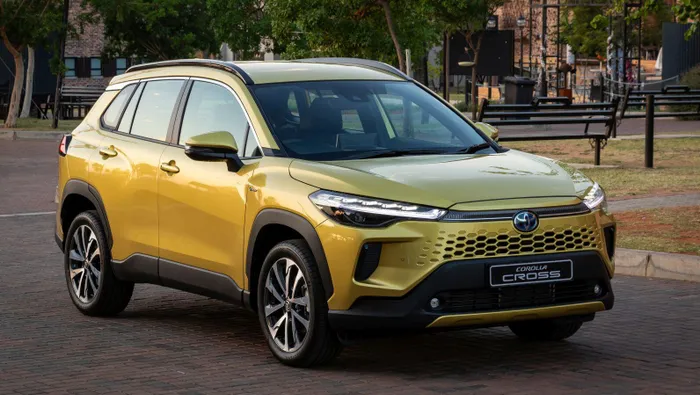
Toyota Corolla Cross HEV.
Image: supplied
Its 1.8-litre Atkinson Cycle petrol engine combines with an electric motor for a system output of 90kW. Performance is adequate rather than punchy, but its efficiency is impressive.
Toyota claims a combined fuel consumption figure of 4.3 l/100km, versus 6.8 for the regular model. That might be achievable under ideal conditions, but our real-world testing produced figures of 6.0 l/100km in town and 5.6 l/100km on the highway, which is still extremely impressive for a vehicle of this size.
Now more stylish following its recent facelift, the Toyota Corolla Cross HEV is a solid, dependable and practical vehicle, using a well-proven hybrid system and delivering exactly what is says on the box. It comes highly recommended.
The Haval Jolion Pro makes a much better case for itself following its extensive revisions and price adjustment in 2024.
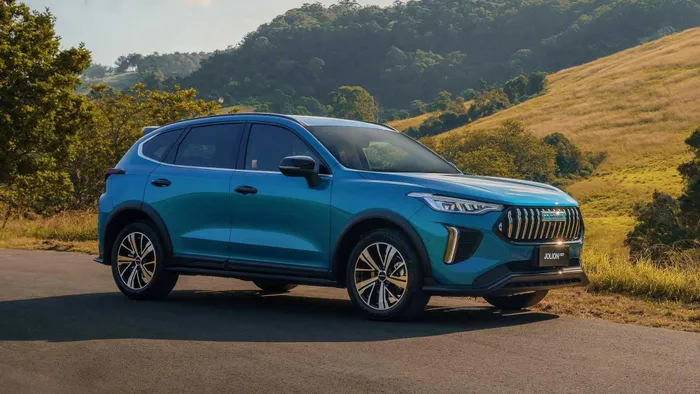
Haval Jolion Pro HEV.
Image: Supplied
The hybrid model is now priced at R519,950, in a single, well-appointed specification level, which they call Ultra Luxury.
It’s not a great deal more expensive than the Corolla Cross, and is significantly more powerful, with a 1.5-litre turbopetrol engine pairing with an electric motor and specially adapted CVT transmission for combined outputs of 140kW and 375Nm. Performance is both punchy and smooth, the e-motor eliminating that laggy sensation that the regular Jolion has been criticised for.
Combined consumption is claimed at 5.1 l/100km, while our test vehicle managed 5.9 l/100km, which is impressive in our book.
The Jolion boasts a spacious cabin and is equipped to the hilt, but the 255-litre boot is smaller than you’d expect in a vehicle this size, thanks to the hybrid hardware, and, rather worryingly, the vehicle also lacks a spare wheel.
What used to be the Jazz is now the Fit, with the fourth-generation model continuing the tradition of impressive cabin space for its size and solid build quality.
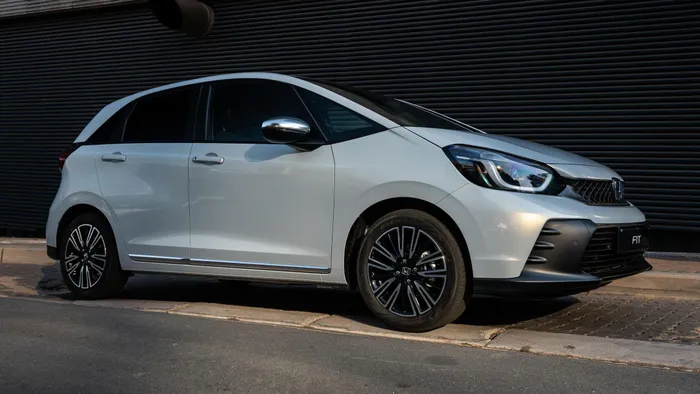
Honda Fit Hybrid.
Image: Supplied
Problem is, in hybrid form the Fit is priced out of contention, with its price tag of R544,900 seeming excessive for a B-segment hatchback, as competent as it may be.
The powertrain pairs a 1.5-litre petrol engine with an electric motor for system outputs of 90kW and 253Nm. But the most impressive figure is its claimed combined fuel consumption figure of just 3.7 litres per 100km.
If a traditional hatchback or sedan still floats your boat, Toyota offers a range of options with its stylish Corolla range.
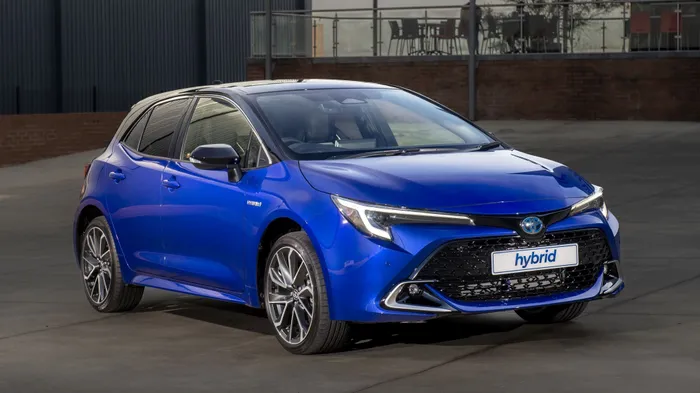
Toyota Corolla hatch hybrid.
Image: Supplied
No longer locally built, they are on the expensive side, with the 1.8 Hybrid hatch priced at R552,700 in XS form and R595,100 in XR guise, while the sedan equivalents cost R560,300 and R581,700 respectively.
They have a similar 1.8-litre hybrid powertrain as their Corolla Cross cousin, albeit an upgraded version with outputs of 103kW and 142Nm.
When we tested the XR hatch in 2023, we were more than satisfied with the performance on offer, and economy was particularly impressive, at 5.2 l/100km.
The hatch has a sporty vibe to it, but keep in mind that it’s not as practical as the Cross, which might be a better bet if you’re seeking a family car. The price premium also counts against the hatch and sedan.
With an introductory price tag of R599,900, valid for three months, the new Chery Tiggo CSH is officially South Africa’s least expensive plug-in hybrid vehicle. This applies to the Plus variant, whose usual sticker price is R619,900, and customers can also opt for the more opulent Ultra version at R679,900.
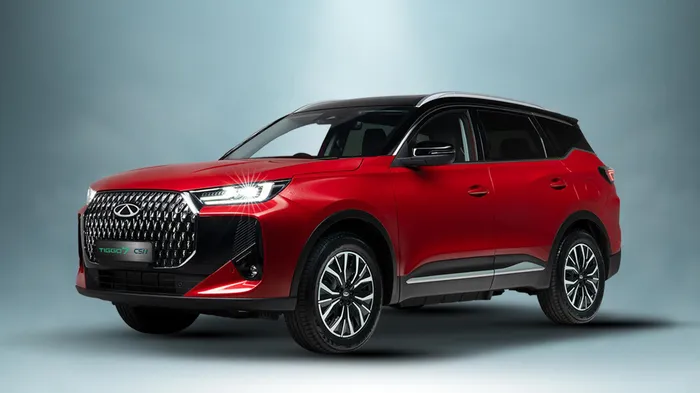
Chery Tiggo 7 CSH.
Image: Supplied
The Tiggo 7’s 18.3 kWh battery enables an all-electric range of 93km on electric power alone, according to claims, and thanks to the combination of a 1.5-litre turbopetrol engine with a powerful electric motor, the vehicle boasts combined outputs of 265kW and 310Nm.
The combined range, with a full tank of petrol, is said to be in the region of 1,200km.
Chery says a full recharge takes around one hour using a DC fast charger, or between four and eight hours when connected to an AC charger.
The Chery also comes with an impressive warranty, with the battery covered for 10-years of unlimited mileage, albeit only applicable to the first owner.
While we await our first road test experience of this newly launched model, the Tiggo 7 CSH certainly looks impressive on paper.
If you’re willing to stretch the budget a little, BYD offers the Sealion 6 PHEV rival for R639,900.
Related Topics:
